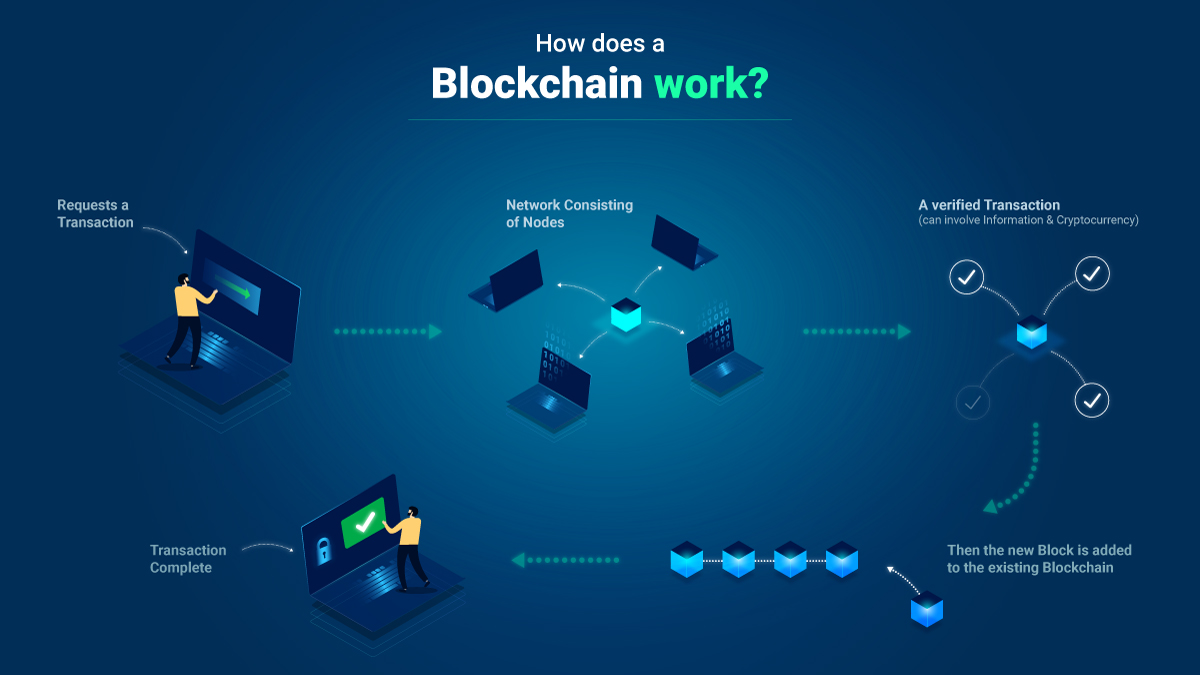
Blockchain is a revolutionary technology that has gained a lot of attention in recent years. It is essentially a decentralized digital ledger that records transactions across a network of computers, making it secure and tamper-proof. The blockchain technology was first introduced in 2008 as part of the Bitcoin cryptocurrency, but it has since been adopted by a wide range of industries for various applications. In this article we will give you details about blockchain features and how does it work?
What is Blockchain?
Blockchain is a digital ledger that consists of a series of blocks that are linked together in a chronological and immutable manner. Each block contains a set of transactions that have been verified by a network of computers known as nodes. Once a block is added to the chain, it cannot be modified or deleted.
Blockchain Features
Blockchain technology is revolutionizing various industries with its unique features that offer numerous benefits. From increased transparency to decentralization, there are several features that make blockchain technology stand out. In this article, we will explore the most important features of blockchain.
1. Decentralization
Unlike traditional systems where there is a central authority controlling everything, blockchain technology operates on a network of nodes that are distributed across the world. This means that there is no central point of control, making it more secure and less prone to cyber attacks.
2. Transparency
Blockchain technology offers unprecedented transparency, which is vital in many industries, especially finance. With blockchain, every transaction is recorded on a public ledger, which can be viewed by anyone. This eliminates the need for intermediaries and ensures that all transactions are transparent and secure.
3. Immutability
Once a transaction is recorded on a blockchain, it cannot be changed or tampered with. This is because every block in a blockchain contains a unique hash that is generated from the previous block. Changing any data in a block will alter its hash, making it impossible to alter or remove any data from the blockchain.
4. Security
Blockchain technology offers unparalleled security due to its decentralized nature and immutability. Every transaction is verified by a network of nodes, and no one can alter or delete any data from the blockchain without the consensus of the network. This makes it virtually impossible for hackers to corrupt or manipulate the data on a blockchain.
5. Smart Contracts
Smart contracts are self-executing contracts that are stored on a blockchain. They automatically execute when certain conditions are met, eliminating the need for intermediaries and ensuring that transactions are secure and transparent. Smart contracts can be used in various industries, including finance, real estate, and supply chain management.
How does Blockchain work?

Blockchain works by using a consensus mechanism to verify transactions and add them to the ledger. This consensus mechanism is called Proof of Work (PoW) or Proof of Stake (PoS), depending on the Blockchain platform.
In a PoW system, nodes on the network compete to solve complex mathematical problems, and the first node to solve the problem gets to add the next block to the chain. This process is known as mining, and the nodes that participate in mining are called miners. Once a block is added to the chain, it is broadcast to all the nodes on the network, and they verify the transactions in the block.
In a PoS system, nodes on the network stake their coins as collateral, and the network randomly selects nodes to validate transactions and add them to the ledger. The nodes that validate transactions are called validators.
Once a block is added to the chain, it is broadcast to all the nodes on the network, and they update their copy of the ledger. This ensures that all the nodes have a copy of the same ledger, and no one can alter or delete transactions from the ledger.
Applications of Blockchain
Blockchain has numerous applications in various industries, including finance, healthcare, logistics, and supply chain management. Here are a few examples:
-
Finance: Blockchain can be used to create a secure and transparent system for financial transactions, eliminating the need for intermediaries like banks.
-
Healthcare: Blockchain can be used to create a secure and transparent system for storing patient data, making it easier for doctors and hospitals to access patient records.
-
Logistics: Blockchain can be used to create a secure and transparent system for tracking goods and verifying their origin and authenticity.
-
Supply chain management: Blockchain can be used to create a secure and transparent system for tracking the movement of goods from the manufacturer to the consumer.
At the end, Blockchain technology has numerous features that make it a game-changer in various industries. From decentralization to transparency, immutability, security, and smart contracts, blockchain technology offers a host of benefits that traditional systems cannot match. As the technology continues to evolve, we can expect to see more innovative use cases that will transform industries and improve the lives of people around the world.
- TAGS:
- BLOCKCHAIN
- VPSCHAIN
- BUY VPS
- BUY HOSTING
COMMENTS (0)
The list of comments is empty